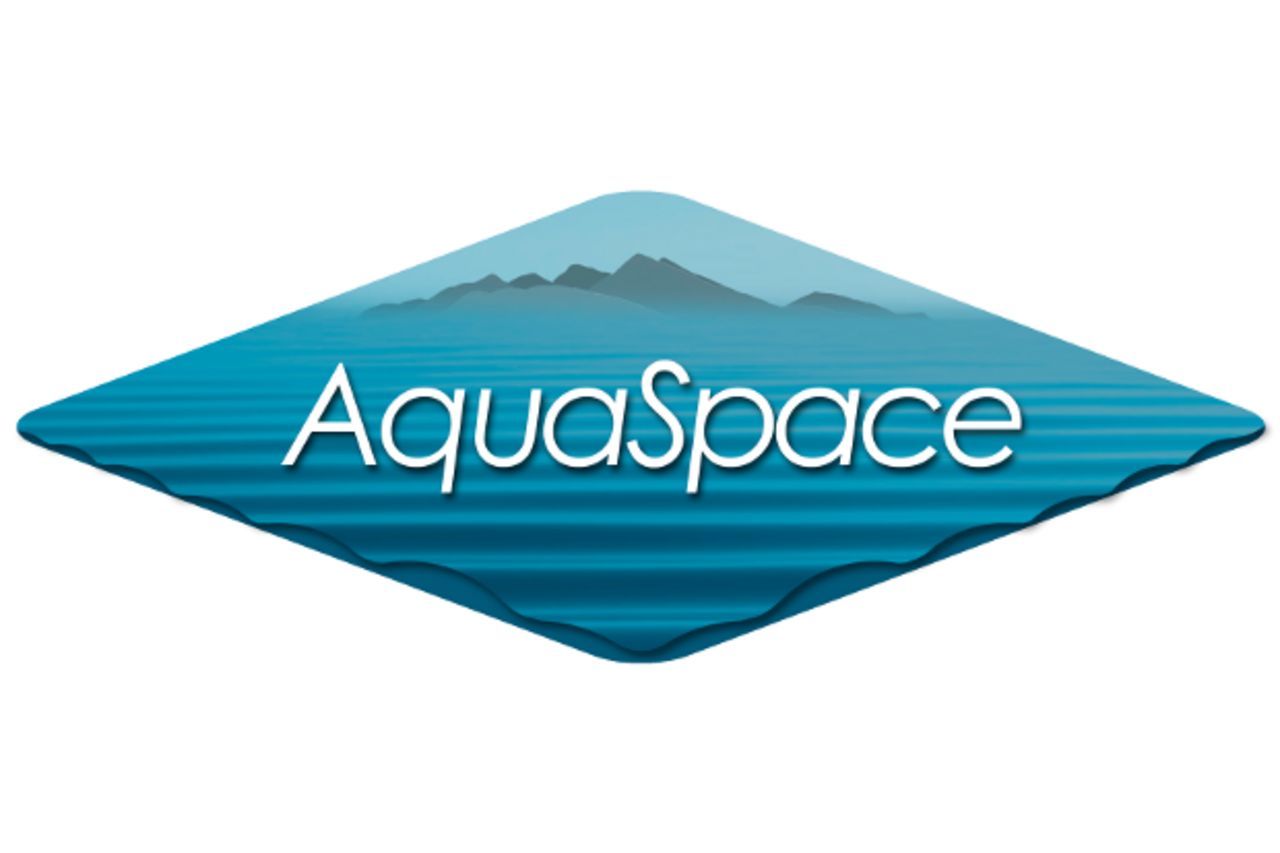Project
How to meet the growing European demand for aquatic food products? (AquaSpace)

Ecosystem Approach to making Space for Sustainable Aquaculture (AquaSpace)
Taking advantage of the fastest growing animal food-producing sector, the delivery of sustainable food security and increased employment opportunities through economic growth is supported by optimizing space availability for European Aquaculture.
Background and Objective
By adopting the Ecosystem Approach to Aquaculture (EAA) and Marine Spatial Planning (MSP) to deliver food security and increased employment opportunities through economic growth, the central goal was to provide increased space of high water quality for aquaculture.
Target Group
Science, politics, economics.
Approach
Key constraints experienced by aquaculture development at 16 case study sites having a variety of scales were identified and mapped against the a set of evaluated tools for facilitating the aquaculture planning process by overcoming present constraints. As several gaps in the methodology were identified, aquaculture specific tools have been developed such as the Geographic Information System (GIS)-based planning tools empowering an integrated assessment and mapping of 30 indicators reflecting economic, environmental, inter-sectorial and socio-cultural risks and opportunities for proposed aquaculture systems.
All information are presented in an interactive web-based toolbox with tailored entry points for specific user types (e.g. planners, farmers, public) to enable them to navigate to the tools most appropriate to their application. The information and knowledge gained during this process was developed into an online module at Master's Degree Level as well as a short Continuing Professional Development (CPD) course aimed at aquaculture planning professionals.
Data and Methods
- Stakeholder consultation in order to identify key issues constraining the growth of aquaculture in Europe
- Review of tools and methods which can be applied to support the management of spatial management options with aquaculture
- Gap analysis of tools and methods supporting aquaculture-specific management
- Development of tools and methods with tailored entry points for specific user types (e.g. planners, farmers, public) supporting the assessment of management strategies with aquaculture
- Development of a user-driven toolbox comprising applications appropriate to overcome present constraints
- Development of an online module at Master’s Degree Level which will also be developed into a short Continuing Professional Development (CPD) course aimed at aquaculture planning professionals
Our Research Questions
- Which are the key issues constraining the growth of aquaculture in Europe?
- How can local end-users such as (future) aquaculture planners be engaged in an issue-focused, user-driven and scale-sensitive manner to test and assess relevant tools and document their utility?
- Which tools will enable effective implementation of EAA and MSP to support the aquaculture sector?
Results
A total of 35 different types of issues were reported from the stakeholder consultation process. These were then further classified according to the four dimensions of the sustainability with the following proportion of issues for each dimension: (i) Policy and management (36%); (ii) Environmental (25%); (iii) Economic and market (21%); and (iv) Other sectors; which integrates the social dimension (18%). The most important issues were related to the following fields:
- Conflicts with other uses
- Administrative procedures/licensing
- Regulation and planning
- Production costs
The majority of tools reviewed were developed to solve environmental issues, followed by tools and methods to address policy-management issues and other sector issues. Tools considering economic and market issues were lacking. Further, the gap analysis revealed that no practical tools were found which considered all of the listed key issues.
The tools developed subsequently within AquaSpace:
- AquaSpace tool
- Online policy-management platform
- Aquaculture Investor Appeal/Aquaculture Investor Index App
While the AquaSpace tool applications located in Northern Europe are mostly related to finfish in offshore areas, applications in the South are rather related to oyster and mussel cultures nearshore. The computation of aquaculture planning scenarios and the assessment of their trade-offs in the Southern North Sea showed that it is entirely possible to identify aquaculture sites, that correspondent to multifarious potential challenges, for instance by a low conflict potential, a low risk of disease spread, a comparable high economic profit and a low impact on touristic attractions.
Links and Downloads
- Results from the stakeholder consultation: www.aquaspace-h2020.eu/wp-content/uploads/2018/04/AquaSpace-D5-1-Synthesis-revised.pdf
- Results from the gap analysis: http://www.aquaspace-h2020.eu/wp-content/uploads/2017/10/Tools-and-methods-supporting-EAA.pdf
- AquaSpace tool literature: https://www.sciencedirect.com/science/article/pii/S0048969718301554
- AquaSpace tool manual: http://www.aquaspace-h2020.eu/wp-content/uploads/2017/10/D3.3-AquaSpace-tool-to-support-MSP-tool-manual-2nd-version.pdf
- AquaSpace tool download: https://gdi.thuenen.de/geoserver/sf/www/aqspce.html
- Online Management Platform: http://www.longline.co.uk/aquaspace/policy/
- Aquaculture Investor Appeal/Aquaculture Investor Index: http://www.longline.co.uk/site/products/aquainvestor/
- Web-based platform: http://www.aquaspace-h2020.eu/?page_id=11626
- User-driven toolbox: http://www.aquaspace-h2020.eu/?page_id=13343
- Online module: http://www.aquaspace-h2020.eu/?page_id=13345
Thünen-Contact

Involved Thünen-Partners
Involved external Thünen-Partners
- Scottish Association for Marine Science (SAMS)
(Oban, Schottland, Großbritannien (inkl. Nordirland)) - Agri-Food and Biosciences Institute (AFBI)
(Belfast, Nordirland, Großbritannien (inkl. Nordirland)) - AZTI-Tecnalia (Marine and Food Technological Centre. The Marine Research Division) / Fundación AZTI
(Bilbao, Sukarrieta, Spanien) - BLUEFARM srl
(Venedig, Italien) - Christian Michelsen Research AS
(Bergen, Norwegen) - Agencia Estatal Consejo Superior de Investigaciones Científicas (CSIC)
(Madrid, Cordoba, Spanien) -
Food and Agriculture Organization of the United Nations (FAO)
(Rom, Italien) - Nemzeti Agrárkutatási és Innovációs Központ (NARIC) - National Agricultural Research and Innovation Centre
(Gödöllő, Pest, Ungarn) - Institut français de recherche pour l'exploitation de la mer (IFREMER)
(Brest, LHoumeau, Issy-les-Moulineaux, Nantes, Frankreich) - Institute of Marine Research (IMR) / Havforskningsinstituttet (HI)
(Bergen, Tromsø, Norwegen) - The James Hutton Institute (JHI)
(Dundee, Großbritannien (inkl. Nordirland)) - Longline Environment Ltd. (LLE)
(London, Großbritannien (inkl. Nordirland)) - Marine Scotland Science (MSS)
(Montrose, Großbritannien (inkl. Nordirland)) -
Sagremarisco - Viveiros de Marisco Lda (SGM)
(Budens, Portugal) - University College Cork
(Cork, Irland) -
University of Crete
(Heraklion, Griechenland) - Dalhousie University
(Halifax, Nova Scotia, Kanada) -
Yellow Sea Fisheries Research Institute (YSFRI), Chinese Academy of Fishery Sciences (CAFS)
(Qingdao, Volksrepublik China) - University of Western Australia
(Crawley, Perth, Australien) -
BIHARUGRAI HALGAZDASÁG Mezőgazdasági Termelő, Értékesítő és Természetvédelmi KFT
(Budapest, Ungarn)
Funding Body
-
European Union (EU)
(international, öffentlich)
Duration
3.2015 - 2.2018
More Information
Project funding number: 633476
Funding program: EU – Horizon 2020 – Societal Challenge "Food Security, Sustainable Agriculture and Forestry, Marine, Maritime and Inland Water Research and the Bioeconomy"
Project status:
finished
Publications
- 0
Lasner T, Gimpel A (2024) Aquaculture as a dysfunctional system of action; Why does fish farming stagnate in Germany? Mar Policy 170:106405, DOI:10.1016/j.marpol.2024.106405

![[Translate to English:] [Translate to English:]](/media/_processed_/7/1/csm_IMG_7977_large_1defaf5de1.jpg)






